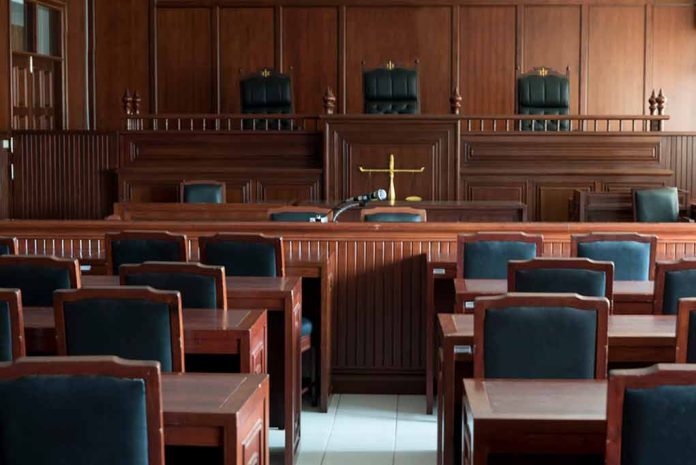
An Idaho judge’s decision to uphold DNA evidence could determine the fate of Bryan Kohberger, the suspect in the murder of four University of Idaho students.
Key Takeaways
- A judge denied the defense’s motion to exclude DNA evidence linking Bryan Kohberger to the murder of four University of Idaho students.
- The defense argued Kohberger’s DNA was collected without a warrant, but the judge ruled there is no privacy expectation for crime scene evidence.
- Kohberger’s trial is set for August, with prosecutors seeking the death penalty if convicted.
- DNA evidence was found on a knife sheath at the crime scene, linked to Kohberger through family tree databases and DNA from his family home trash.
- The defense claimed Kohberger’s constitutional rights were violated, but the judge disagreed.
Judge Rules on DNA Evidence
In a pivotal ruling, an Idaho judge denied a defense motion to exclude critical DNA evidence in the case against Bryan Kohberger, the accused in the tragic murder of four University of Idaho students. The defense maintained that this DNA evidence was acquired without a warrant, compromising Kohberger’s constitutional rights. However, the judge ruled that there is no expectation of privacy for evidence collected at a crime scene, allowing the DNA evidence to remain a central part of the prosecution’s case.
Kohberger, currently in custody at the Ada County Sheriff’s Office, was arrested on December 30, 2022. He faces four counts of first-degree murder and one count of burglary after allegedly breaking into an off-campus residence and killing four students on November 13, 2022. The upcoming trial in August will determine Kohberger’s fate, with prosecutors intent on seeking the death penalty should he be found guilty.
Idaho college killings: Judge denies Bryan Kohberger defense motion to suppress DNA evidence https://t.co/3cvaAqOSya pic.twitter.com/LQTHP4rR0j
— Eyewitness News (@ABC7NY) February 20, 2025
DNA Evidence and Defense Claims
The DNA evidence that links Kohberger to the crime scene was discovered on a Ka-Bar knife sheath found under one of the victim’s bodies. This evidence was matched to Kohberger through investigative genetic genealogy, drawing connections from DNA found in his family home’s trash. The defense argued that the collection process violated Kohberger’s rights; however, Judge Steven Hippler firmly rejected this claim, asserting that no improper conduct occurred in collecting the evidence.
If the defense’s attempts to suppress the DNA evidence had succeeded, additional key evidence—such as cell phone data and surveillance footage—would have been rendered inadmissible. The victims’ families, notably the Goncalves family, have expressed their relief and gratitude for the court’s decision.
Public Reaction and Ongoing Coverage
The Goncalves family’s response highlights the emotional journey of the victims’ loved ones. The case has drawn substantial attention, featuring in documentary and podcast series like “Bryan Kohberger: Inside the Idaho Murders.” Public interest peaks as Kohberger’s trial date approaches, with many observing the unfolding legal proceedings closely, eager for a resolution that provides both justice and closure.
As the legal process carries on, the implications of Kohberger’s trial hold significant weight. The coming months will reveal whether or not the prosecution’s case holds sufficient ground to secure a conviction.
Sources
- Judge upholds DNA evidence in Bryan Kohberger Idaho murders trial
- Idaho college killings: Judge denies Bryan Kohberger defense motion to suppress DNA evidence
- Idaho judge denies Bryan Kohberger defense motion to suppress key evidence













